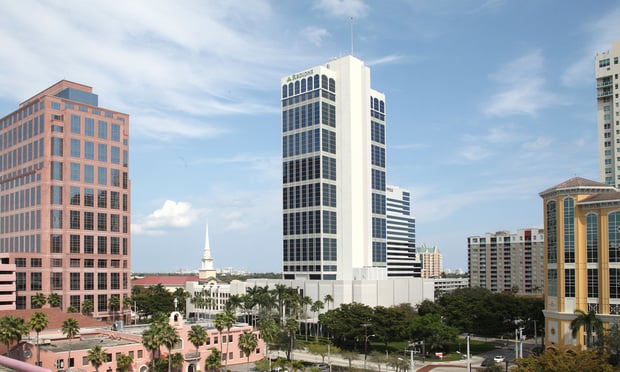The RCA report notes that $2.2 trillion of properties acquired or refinanced between 2004 and 2008 have lost value since the transaction. "Many of these properties, typically leveraged 70% to 80%, would face [problems] even if prices held firm," White writes. "Few lenders now are willing to advance more than 50% to 60% of value."
He adds that the equity in $1.3 trillion of properties is "at great risk if not already wiped out," because properties acquired or refinanced in 2006 through 2008 have already seen price declines of 25% or more. Prices for office, industrial, retail and apartment properties nationally have dropped 34.8% from the October 2007 peak, as measured by the latest Moody's/Real Estate Analytics Commercial Property Price Index, which is derived from RCA data.
In the first five months of 2009, prices registered an 18% decline, according to the CPPI, with the index dipping 7.6% in May alone. "Peak to trough, we see a larger move in prices in commercial than Case-Shiller has reported in residential," says a REAL spokeswoman. Indeed, the most recent Fiserv Case-Shiller Home Price Index, released last week, showed that the decline in single-family housing prices has slowed for two consecutive months.
RCA's report notes that property sales so far in '09 equates to just 7% of the volume achieved at the peak in the first half of 2007. "While sales volume this year barely registers on the graph, the jump in activity in June is clearly visible and may be an early signal that buyers are returning, lured by lower prices," White writes.
Meanwhile, the value of distressed properties has more than doubled so far his year, according to RCA's report. A total of $93 billion of US office, industrial, retail and apartment properties have fallen into default, foreclosure or bankruptcy during this cycle, and troubled hotels and other commercial property types add "at least another $31 billion" to the total, the report states.
And although distress is accumulating quickly, its resolution is another matter. "Less than 10% of the distressed situations that have emerged have been resolved," the report states. Lenders have been slow to foreclose on assets and the phrase 'pretend & extend' has recently entered the vernacular."
Just as slow, apparently, is the mushrooming of interest in distressed assets. An Ernst & Young survey of investors in distressed debt, released Tuesday, finds that most are waiting for an increase in loan defaults before acting. "It's clear from what we're being told by buyers and sellers and what we see in the market that we're in the dog days of distressed debt right now," says Mark Grinis, leader of E&Y's real estate distress services group, in a release.
Unlike the 1990s, when the formation of the Resolution Trust Corp. led to market-clearing price levels, "there are very few deals happening today other than one-off distressed sales," Grinis adds. "The government's PPIP initiative has largely fallen on deaf ears, sellers are weighing their options, and a broad spectrum of buyers are simply waiting for the dam to burst and unleash a highly anticipated wave of deals."
RCA's analysis includes only office, industrial, apartment and retail properties of significant size. Hotels, land, other property types and smaller properties "would add billions more to the total," according to RCA.
Want to continue reading?
Become a Free ALM Digital Reader.
Once you are an ALM Digital Member, you’ll receive:
- Breaking commercial real estate news and analysis, on-site and via our newsletters and custom alerts
- Educational webcasts, white papers, and ebooks from industry thought leaders
- Critical coverage of the property casualty insurance and financial advisory markets on our other ALM sites, PropertyCasualty360 and ThinkAdvisor
Already have an account? Sign In Now
*May exclude premium content© 2024 ALM Global, LLC, All Rights Reserved. Request academic re-use from www.copyright.com. All other uses, submit a request to [email protected]. For more information visit Asset & Logo Licensing.








